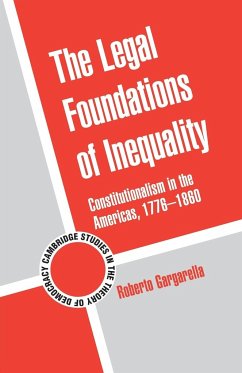
Political Order and Inequality
Versandkostenfrei!
Versandfertig in 1-2 Wochen
32,99 €
inkl. MwSt.
Weitere Ausgaben:

PAYBACK Punkte
16 °P sammeln!
The fundamental question of political theory, one that precedes all other questions about the nature of political life, is why there is a state at all. This book describes the foundations of stateless societies, why and how states emerge, and the basis of political obligation.














